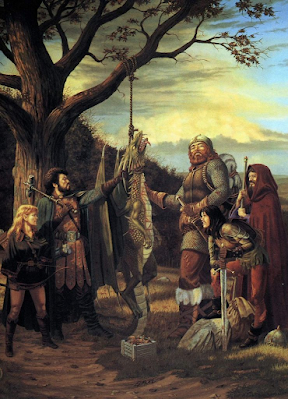The Difficult-to-Believe Case of Zak Smith's Innocence
I honestly did not imagine myself to be writing a piece like this on this blog. But I feel morally obligated to do so, given that I previously wrote a piece based on the firm assumption of his guilt . Yesterday, Jeff Rients shared a link to an article based on an upcoming research paper by Dr. Clio Weisman. I'd encourage anyone who has, or has had, some interest in the OSR community and/or held some sort of opinion on the case of Zak Smith, to read it after reading this one. tl;dr - The article is about the utterly bizarre lying, harassing and slandering behaviour that has somehow become prevalent in certain sectors of the Rennaisance-Formerly-Known-as-OSR. And Zak Smith sat at the heart of it, as its principal recipient. Dr. Weisman thus chose him as her case study. Long story short, Dr. Weisman lays out a meticulous and researched case that shows Smith to be targeted by OSR trolls for many years with a series of slanderous harassment campaigns, and also to be th...





